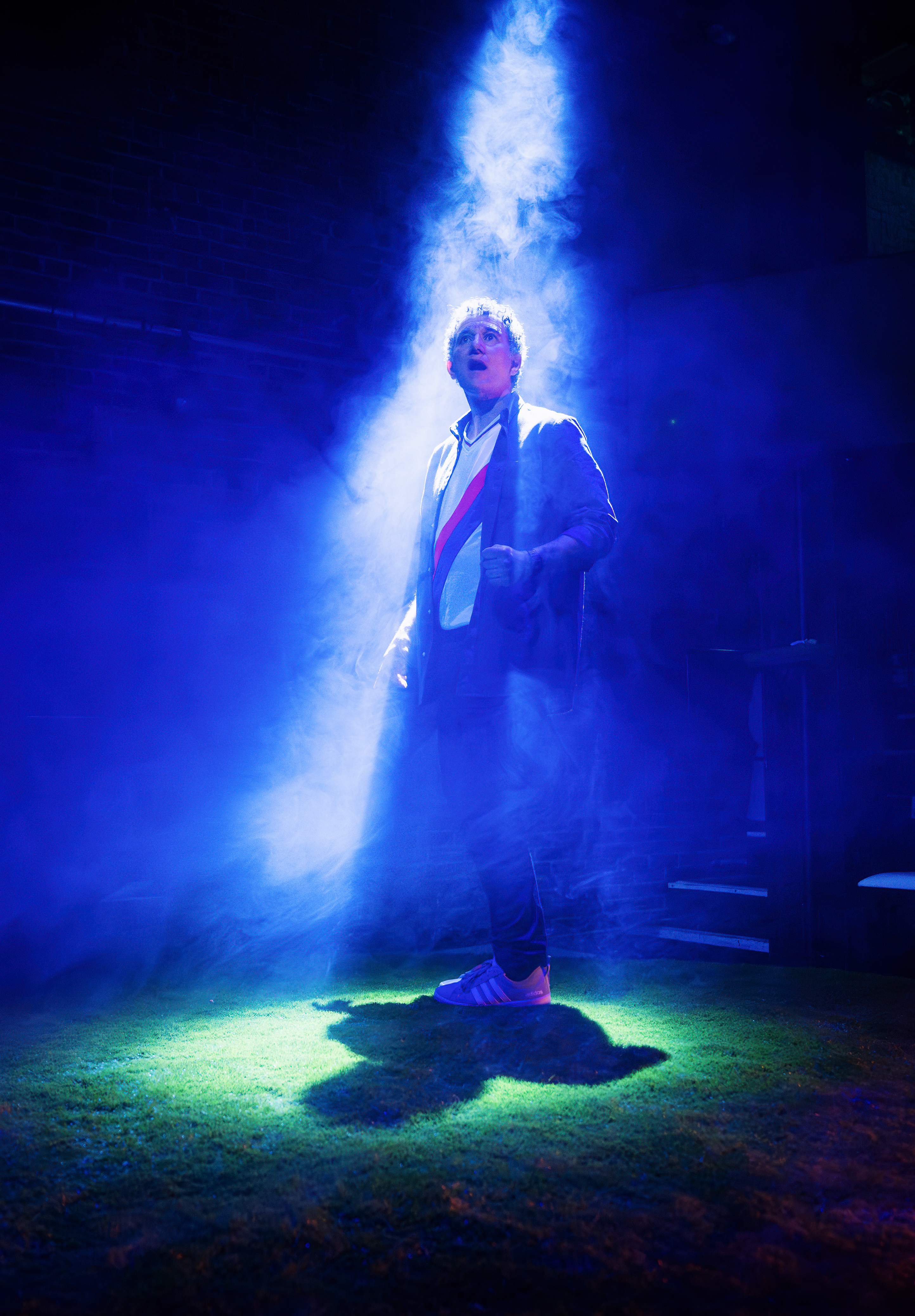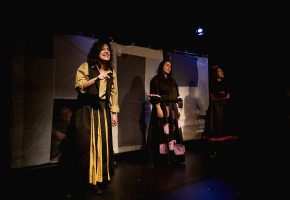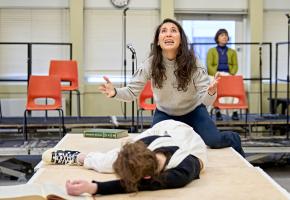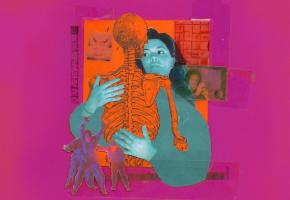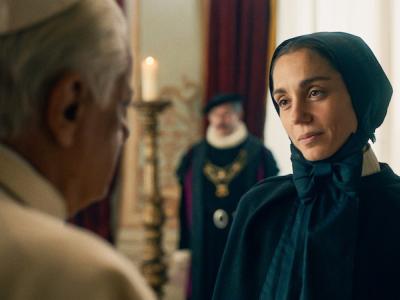Having read the content warnings on the Arcola website - which reference “assisted suicide, mentions of necrophilia, mental health and blasphemous language [and] descriptions of mass disasters” - I came into the theatre feeling pretty nervous. The concept sounded fascinating: an investigation of the opportunity of the body to live on after death as a source of pleasure to someone else. But I was worried that it would be gruesome, or shocking, or disturbing, and that eliciting that kind of horror response would be one of the production’s key aims. It sounded sort of creepy, and a bit horrible, and I wondered whether it might end up being quite an upsetting watch.
But it wasn’t. It was fantastic. The play did, of course, deliver on its content warnings, but in such striking and unexpected ways. Necrophilia wasn’t used as a cheap shock, or to create something sinister - and perhaps to the play’s greatest credit, it was never treated like something that didn’t make sense.
Playwright Sergio Blanco’s writing began with something beautiful - Hafiz’s line of poetry that became his play’s title - and ended with something beautiful. But it didn’t take an easy route; Blanco does not only traverse the taboo but he embraces it. His storytelling asks profound and uncomfortable questions, but never relies on discomfort to do so. It is an absolute art.
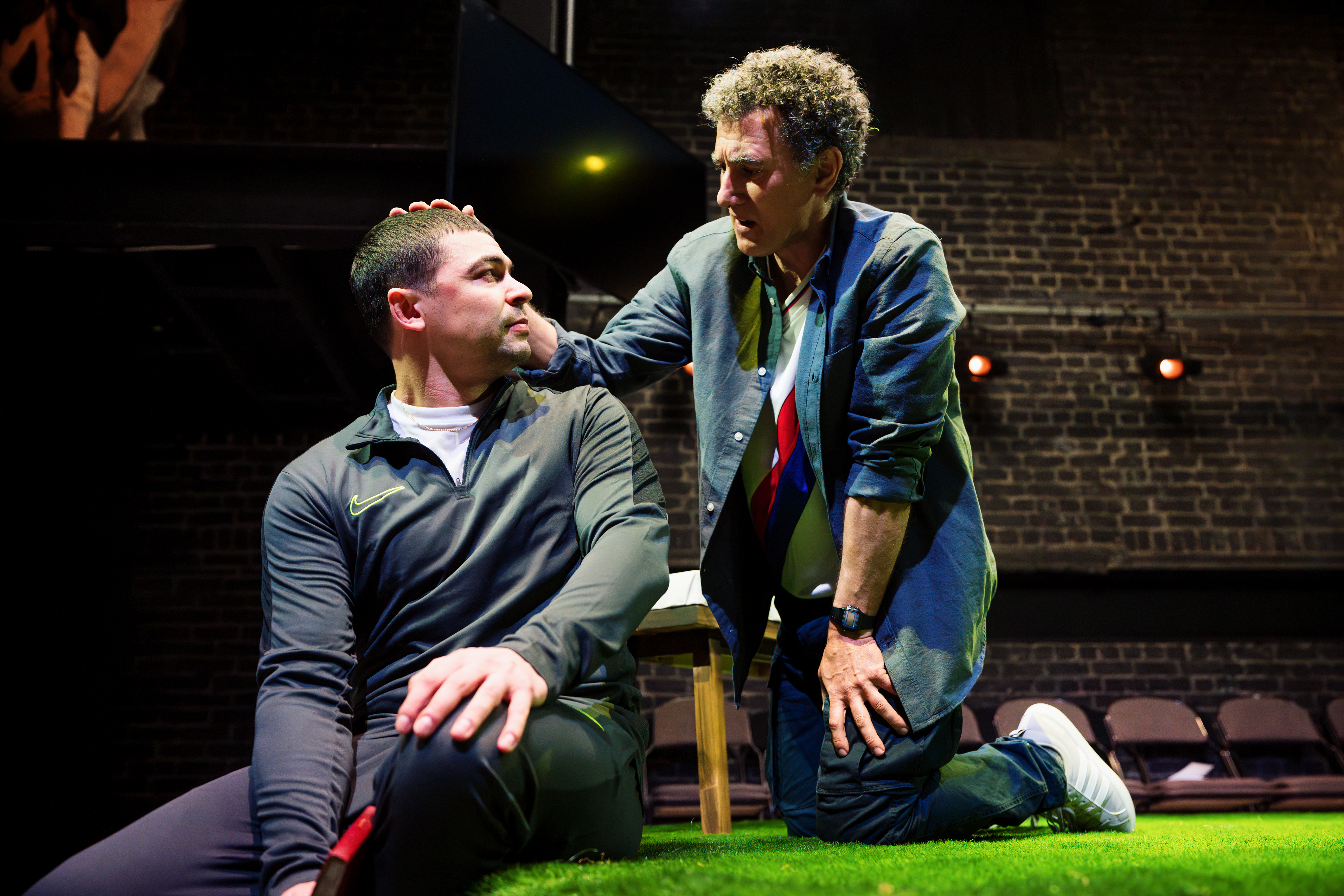
In interview with Blanco and director Daniel Goldman, we dedicated some time to discussing the genesis of the play. As mentioned, it was initially inspired by visiting the grave of Persian lyric poet Hafiz in Iran, and seeing the seed of a play in the words on his tomb. From here, a script developed: Blanco is undeniably eccentric, and decided to write the play in bull’s blood, only settling for this once having concluded that he couldn’t use his own.
This script was honed and changed as the play came together, and through an all-male cast, a focus was found on “male relationships, masculinity, male eroticism, the queerness of the play” (Goldman). Within this, as Blanco describes, existed the “universal subjects” of “fear, loyalty, legacy, death, love”. And beyond this, collaboration with actors and the deliberate induction of their lives into the story led to one of Blanco’s most magical devices: the ghosts.
“The ghosts appeared in rehearsals”, explains Blanco. In this play, each actor plays two characters simultaneously: one of which being someone involved in the action of the play in a more traditional sense, and the second of which being the ghost of themselves. If this sounds complex, it is, but it isn’t convoluted to watch. The writing and the direction come together to take an ambitious concept and make it incredibly natural onstage. Through the ghosts, an even greater gravity is afforded to three incredible performers, Allel Nedjari, Charlie MacGechan and Danny Scheinmann, as we see parts of them expressed in the characters they play. This is such a gift; each one is charming and magnetic, and massively enjoyable to watch. But beyond this, we get an insight into the construction of the action, and a real-time illustration of the unending spiral of interconnected ideas in the play.
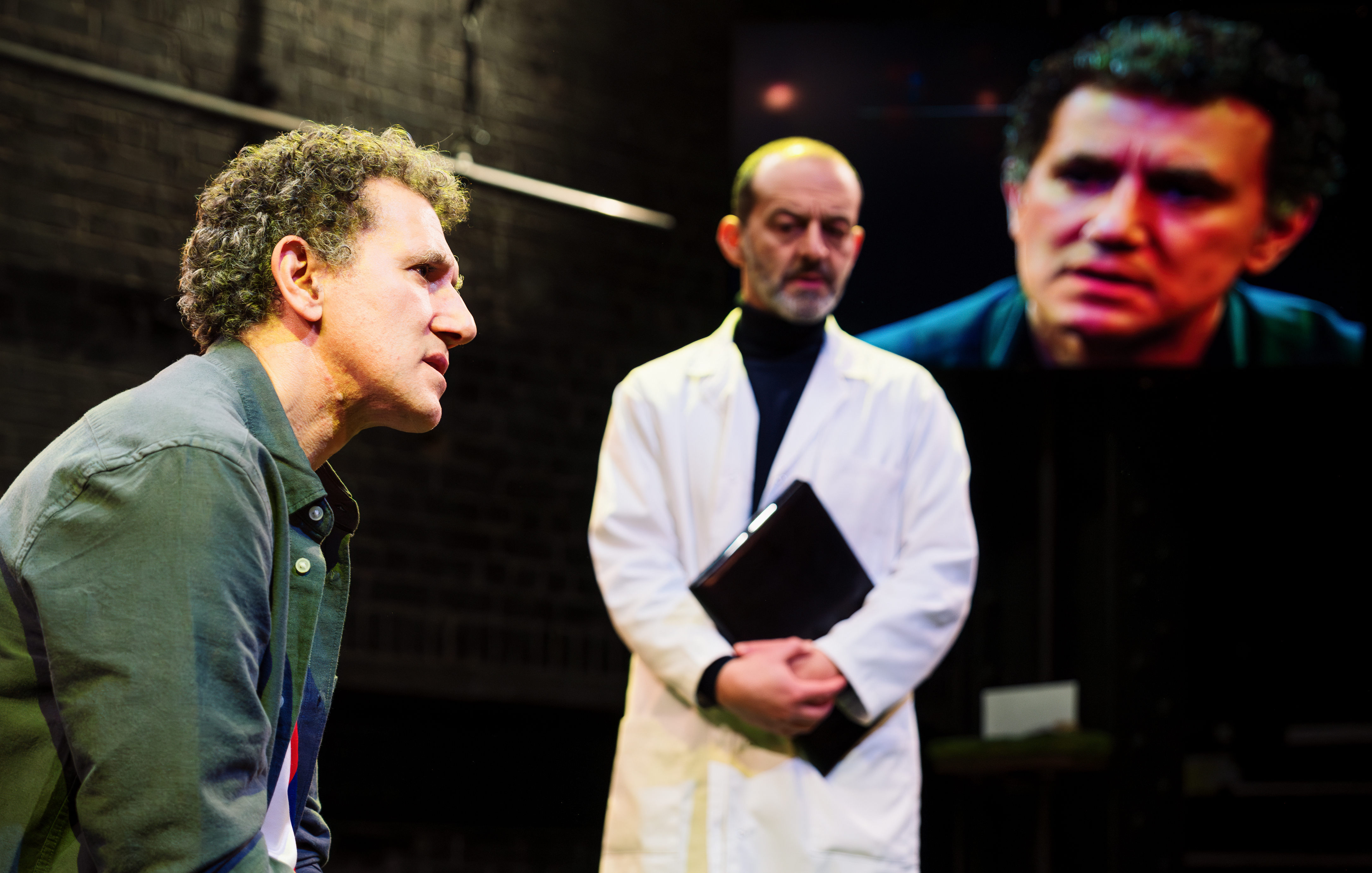
No write-up, I feel, will quite do this aspect justice. Blanco’s play simply feels like an optical illusion. He engages closely with the idea of auto fiction, and makes a point of taking no interest in distinguishing between what’s true and what isn’t, stating that “memory is a story we tell ourselves. To remember our past is to rewrite it.”. He also consistently messes with the idea of the fourth wall: it is broken from the off, but he pushes even further than that, emphasising not only that this is a play with an audience, but that it is incredibly contrived. As though taking place in a hall of mirrors, the work reflects and refracts itself over and over again, and the audience is left disorientated and unsure. This, however, should not be understood as a criticism: to be disorientated and unsure is, in this case, utterly exhilarating. The play is intrinsically indefinite and ambiguous, and great pains have been taken so as to leave as many doors open as possible.
As director Daniel Goldman points out, “some people like that and some people don’t like that”. If you seek didacticism or conclusivity in your theatre-going experience, give this a miss. Watching this play necessitates active interest, and asks you to interact on your own terms, and takes all of the most wonderful and enigmatic routes through storytelling so as to allow you to leave with your own personal version of the play. It is unlike anything I have seen before.

When You Pass Over My Tomb does exactly what theatre is supposed to do - it enthuses. It leaves you with a feeling that you must do something about it. Leaving the theatre with a thousand open tabs in my brain, I felt the true power of innovative storytelling, and rushed to book another round of tickets.
When You Pass Over My Tomb is showing at the Arcola Theatre until the 2nd of March


